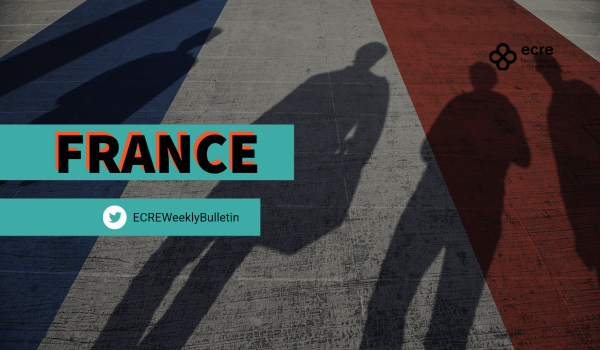Activists and NGOs say that the decision of Court of Justice (CJEU) on conditions of internal border checks in a member state confirms the illegality of the French policy that has led to systematic pushbacks of migrants and denial of right to asylum. Meanwhile, people on the move continue to find different and life-threatening ways to reach their destinations despite deterrence efforts.
The Court of Justice ruled earlier this month that European countries may re-establish internal borders checks and to issue decisions refusing entry to irregular migrants intercepted there. However, these decisions must still comply with Return Directive that guarantees protection from refoulement, access to legal aid and limited use of coercive measures. Reportedly, France has put in place internal control checks since 2015 and therefore all trains passing through the French coastal city of Menton are checked as well as border areas including the Alps have been monitored by border police. Activists reported that the temporary border controls have been used by France to push back migrants attempting to enter the French territory to seek asylum, making the ruling in conflict with the current French policy. Doctors Without Borders (MSF) teams have long called on France to end the systematic practice of pushbacks and denial of basic necessities on the French-Italian borders. Anafé underlined that the court’s ruling confirms the illegality of the French government’s border policies and “reminds France that it must comply with European Union law, and it is up to the French government to take immediate measures without waiting for the Council of State to draw all the consequences (translated)”. The court’s decision comes days as the focus is on attempts to cross the French-Italian border amid increased arrival to Lampedusa. French interior minister, Gérald Darmanin, announced on 19 September that 200 additional police officers would be sent to the border between Italy and France. France will not welcome any migrants coming from Italy’s Lampedusa, Darmanin said, adding that “If people are eligible for asylum, [if] they are persecuted sexually, politically, religiously, obviously it’s the duty of France like other European countries to welcome them”. “They are not Afghans, they are not Syrians”, Darmanin insisted. French President Emmanuel Macron said on 26 October during a visit to Italy that his country “will not leave Italians alone” in an attempt to soften the tension between both countries following a heated debate over who takes responsibility for asylum seekers reaching European border countries. The president’s support to Italy came after he dismissed Pope Francis’s call for better treatment of migrants in Europe. France “cannot welcome all the misery of the world”, the French President responded, despite the fact that 76% of the world’s refugees are hosted in low or middle-income countries.
Migrants are crossing the Alps from Italy in an attempt to reach France, the UK or beyond. A migrant named Omar, crossing the French border from Italy seeking to reach England, said to BBC: “I just want to have a good life and study there”. “If I have to return to Nigeria, my parents will be so sad, because their dreams didn’t become true,” he adds. A volunteer on the border says that the Italian police are aware of these crossings. “They know exactly what we’re doing here, they know exactly what these people are here for, so it’s like a game somehow,” she says. “They know, but they pretend not to know”. At the same time, migrants are also trying to cross the channel to reach the UK. According to Utopia 56, three migrants died in one week. on the border between Calais and Dunkirk. The latest victim is a 24-year-old Eritrean woman who was found dead in a French Calais breach on 26 September reportedly after a “heart attack”. Meanwhile, six women from Iraq and Vietnam were rescued from the back of a refrigerated truck in France after one of them called a journalist who alerted police. The women, who were locked for hours at a temperature of 6°C, were placed in administrative detention for irregular entry into the territory. Laëtitia Francart, the public prosecutor of Villefranche-sur-Saône, announced on 28 September the release of the six women, adding that four of the women were required to leave French territory within 30 days and the other two were authorized to stay and submit asylum applications. The prosecutor also confirmed that the driver was not under suspicion of any crime as he assisted police with all their questions and gave a statement voluntarily.
On 2 October, migrant families protested in front of Paris municipality to call for accommodation. Reportedly, the protest was met with police harassment.
For further information:
- ECRE, Channel: Sunak’s Frontex Plan Questioned by Peers Amid Ongoing Arrivals and Growing Controversies on the Migration Bill, Violent Police Repression in France as People Are Left on the Streets, June 2023
- ECRE, France: NGOs Point to “Violations” of Rights at French Border with Italy and Spain, Authorities Condemned for 11th Time for Ill-treatment of Migrant Children, Government Cracks Down on Migrants Amid Growing Far-Right Anti-Migrant Attacks, May 2023

